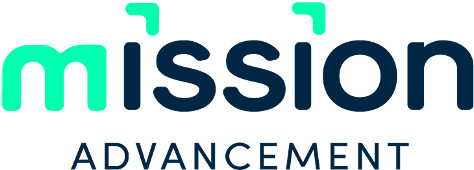There are a lot of resources on the topic of stewardship and accountability in the development office, and most of them are helpful for development professionals as they strive to be responsible. However, the problem with most of the material on this topic is that it only applies to relationships with donors. As development professionals, you are also faced with other relationships that demand your stewardship and accountability – and those relationships are your greatest responsibility.
Let's consider the obvious perspective first. Yes, it is absolutely critical that you are a good steward of your donors and that you account for the gifts they give to fund the mission of your organization. But sending out a thank-you note isn't cutting it – not even a handwritten note, especially for your most important donors.
The question to ask is, "What can I do for my most important donors that will result in their belief that giving in support of the mission was the best decision they could possibly have made?” The answer is different for every donor, but it is always more than a thank-you note.
Even when your donors tell you not to do anything for them, do something – the right thing. You should do this for the same reason that your mother was right when she taught you to always say thank you. Say you were invited to your friends’ home for dinner and, at the end of a lovely evening, you thank them. It is common for the hosts to say, "It was nothing – our pleasure – no thanks necessary – we are happy to do it." Regardless, you still say thank you – and you probably reciprocate by inviting them to your home for dinner in the future. That is how you truly behave as a good steward of that relationship. To not say thank you or not reciprocate in some way takes the relationship for granted and, over time, the relationship suffers.
Okay, that one was pretty easy to grasp. How about a new perspective on stewardship and accountability? You are also accountable to and the steward of a great resource – your board. The accountability side of this is easy to grasp, but perhaps not the stewardship side. Both are critical to understand.
Accountability to the board includes quality and appropriate planning, frequent and accurate reporting, and delivering results that resemble the planning. It is critical to gain and keep the trust and confidence of the board. Your ability to do this directly impacts the board’s ability to sustain and grow the mission.
Another key reason to account to the board is to tap into it as a resource to strengthen your development office. If the board is informed and believes the development operation is working as it should, you are in a much stronger position to engage the board as a strategic resource – replicating your arms and legs in various aspects of your development plan. While engaging the board may still be a challenge, it is far more likely to happen if the board feels in touch and informed.
Another perspective on this topic is stewardship and accountability to the mission of your organization. Whether your mission is to feed the poor or educate children, it is the reason why your job exists. The way you act to engage donors and thank them must be influenced by the mission.
Take the relatively simple task of giving a thank-you gift to an important major donor. I was approached recently by an organization that was contemplating the right way to do this. The question posed to me was: "Is it appropriate to buy our biggest donor an iPad as a way of saying “thank you”? We know he could easily buy one himself, but he won't. We think he would enjoy this."
Let's examine this case carefully. The iPad is certainly within the acceptable cost range of the large gift given by the donor (the cost of the iPad is less than one percent of the size of the gift). He probably would truly enjoy the gift. But my answer is "NO!" While the gift may meet certain criteria of good stewardship and accountability to the donor, it raises too many questions. And it does not meet the criteria for good stewardship and accountability to the board or to the mission. If your mission is to feed starving children in Africa, it is pretty hard to justify buying iPads for your best donors.
So, in this case, the compromise was that the organization above invested its “thank you” budget in a video depicting orphan children (the focus of the mission) singing to and thanking the donor by name. The result was an experience that the donor will never forget and an emotional connection he could not have experienced with a traditional gift.
The long and short of this conversation is this: as a development professional, your greatest responsibility is to be good stewards of the resources entrusted to you and to be accountable to all parties engaged in the mission. As you create and implement your development plan this year, use a quick litmus test:
- Will it honor our donors?
- Will it honor our board?
- Will it honor our mission?
If the answer is yes to all three, then you have managed your greatest responsibility with excellence and integrity.


 MISSION ADVANCEMENT
MISSION ADVANCEMENT



